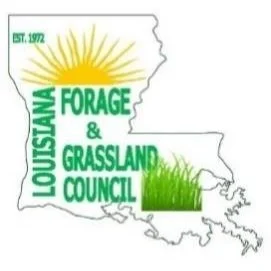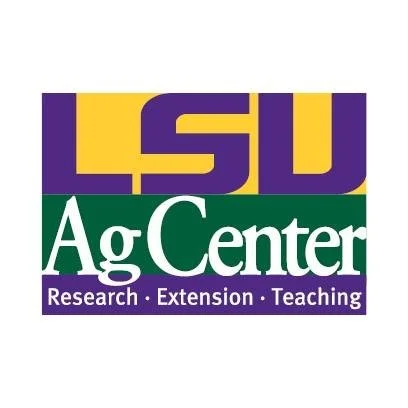Louisiana Bull Rider Recovering Well After Taking Horn to the Neck
It’s been three months since Louisiana native Zach Naegele experienced first-hand just how dangerous riding rodeo can be. It was a ride that nearly killed him, sending him on a downward spiral.
“The first month was extremely hard,” said Naegele. “I fell into depression, couldn’t eat, got extremely skinny, just not talking to nobody. Just staying at the house and seeing this every time I looked in the mirror, it was not a good feeling.”
Read More
USDA To Provide $1B To Livestock Producers Impacted By Drought Or Wildfire In '23 & '24
U.S. Secretary of Agriculture Brooke L. Rollins today announced the release of Congressionally mandated Emergency Livestock Relief Program (ELRP) payments to cover grazing losses due to eligible drought or wildfire events in 2023 and/or 2024. Secretary Rollins committed on May 7 to release these emergency payments by May 30, and today she is delivering on that commitment ahead of schedule.
Read More
Cattlemen Thank USDA For Prioritizing Disaster Recovery
The National Cattlemen’s Beef Association (NCBA) thanked Secretary of Agriculture Brooke Rollins following an announcement from the U.S. Department of Agriculture (USDA) that the agency would quickly be sending Emergency Livestock Relief Program (ELRP) payments to cattle producers who suffered losses from drought and wildfire.
Read More
New World Screwworm Moves Beyond Containment Threshold
To protect the U.S. from a new threat posed by an old foe, the New World Screwworm (NWS), the U.S.-Mexico border was closed on May 11 to cattle, bison, and horses from Mexico. This pest was eradicated from the U.S. in 1966 and eliminated as far south as Panama by 2000. NWS began re-emerging above the biological barrier in Panama in 2022 and has continued moving north through Central America and Mexico.
Read More
For These Louisiana Schools, USDA Cuts Could Mean Local, Grass-fed Beef is Off the Menu
It’s lunchtime at Northwestern Elementary outside Baton Rouge.
The school’s kindergarteners pick out a box of milk and place it on a tray. There’s fried chicken, a roll, a vegetable of their choice, and some pineapple.
“I ate it all,” said a 5-year-old with a gap-toothed grin, pointing to his empty fruit cup.
Read More
Livestock Brand Commission To Host Saddle Microchipping Event May 30
The Louisiana Department of Agriculture and Forestry’s (LDAF) Livestock Brand Commission will host its next saddle microchipping event on Friday, May 30, from 10 A.M. to 2 P.M. It will be held at the Burton Complex located at 7001 Gulf Highway in Lake Charles, Louisiana, in conjunction with the Louisiana High School Rodeo Association.
Read More
Livestock Markets and Dealers Support Efforts to Prevent New World Screwworm
Livestock markets and dealers strongly support recent efforts to stop the spread of the New World Screwworm (NWS) into the U.S.
The introduction of the bipartisan and bicameral Strengthening Tactics to Obstruct the Population of Screwworms (STOP Screwworms) Act, which would authorize funds for and direct the U.S. Department of Agriculture (USDA) to begin construction on a new sterile fly production facility to combat the growing NWS outbreak, was welcomed by livestock marketers and dealers.
Read More
LDAF Encourages Vigilance Regarding New World Screwworm Movement
The Louisiana Department of Agriculture and Forestry’s (LDAF) Commissioner Mike Strain, DVM, applauds the U.S. Department of Agriculture’s (USDA) decision to close the United States’ southern border to shipments of cattle, bison, and horses, due to the continued and rapid northward movement of New World Screwworm (NWS, Cochliomyia hominivorax) in Mexico.
Read More
NCBA Stands With USDA On Border Closure Decision
The National Cattlemen’s Beef Association (NCBA) announced support for the U.S. Department of Agriculture’s (USDA) decision to close the U.S. southern border to shipments of cattle, bison, and horses, due to the continued spread of New World screwworm beyond the phytosanitary border put in place to stop its advance. Today’s announcement is the latest move to halt the spread of this invasive pest that puts the entire U.S. livestock industry at risk.
Read More
Pasture to Market Newsletter: Spring 2025
Spring is in full swing as producers work to get any remaining cool season forages off pastures to allow for warm season forages to make their way through. Remember that forages, such as our winter annuals, can easily shade out summer perennials like bermudagrass. Your local extension agent can help you develop a plan to ensure maximum production of warm season forages on your operation.
Read More
Louisiana Forage Farmer: Spring 2025
Warm-season perennial grasses such as bahiagrass, bermudagrass, and dallisgrass make up most of the acres of improved pasture in Louisiana. They also produce most of the grass hay harvested in the state. These grasses, if properly managed, are capable of remaining productive for many years after establishment, but initial establishment costs can be high.
Read More
2025 Pasture and Warm-Season Forage Crop Variety Suggestions
Variety selection is an important decision that producers must make when establishing forages in pastures. Many varieties of forage crops are marketed in Louisiana and scientists with the Louisiana State University Agricultural Center periodically conduct variety trials with warm-season forages. This information is used to make suggestions each year concerning warm-season forages for producers to consider utilizing.
Read More
Secretary Rollins Suspends Live Animal Imports Through Ports of Entry Along Southern Border, Effective Immediately
U.S. Secretary of Agriculture Brooke L. Rollins announced the suspension of live cattle, horse, and bison imports through U.S. ports of entry along the southern border due to the continued and rapid northward spread of New World Screwworm (NWS) in Mexico, effective immediately. NWS has been recently detected in remote farms with minimal cattle movement as far north as Oaxaca and Veracruz, about 700 miles away from the U.S. border.
Read More
President Trump Secures Trade Win for America’s Cattle Producers
Today, the National Cattlemen’s Beef Association (NCBA) announced support for President Donald Trump’s trade agreement-in-principle with the United Kingdom (U.K.). Most importantly, the agreement includes market access for beef. This announcement follows years of NCBA’s hard work building the foundation for a trade deal with the U.K., including numerous meetings with British industry stakeholders, Members of Parliament, the British Embassy, the U.K. Department for Environment, Food and Rural Affairs, and other top British authorities.
Read More














